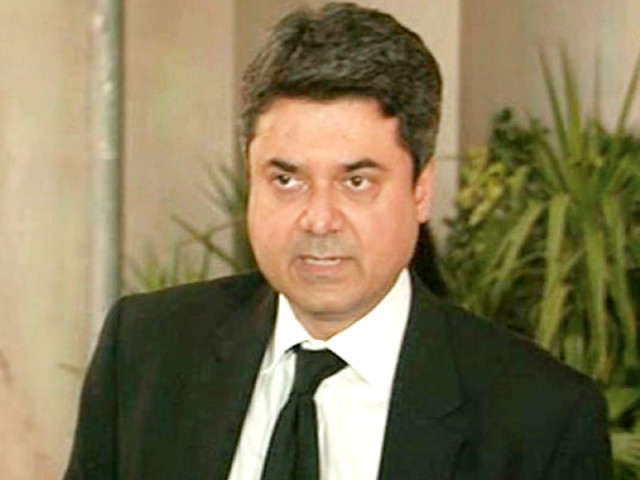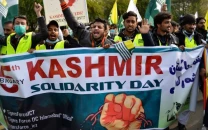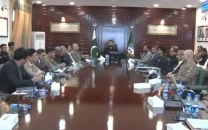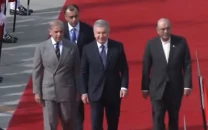India breaching Indus Basin Treaty: law minister
Farogh Naseem says Delhi has begun using water from rivers Indus, Jehlum and Chenab for industries

Barrister Farogh Naseem. PHOTO: FILE
The minister said this while speaking as a chief guest at an International Conference on "Water: Future War and Peace in Subcontinent" organised by the Centre for Global Strategic Studies here on Monday, according to a press release.
Delivering a presentation on "Water Sharing: A Critical Evaluation of the Indus Water Treaty (IWT)", he urged the international community to play its role to urge India to fulfil its international obligations regarding the Indus Basin Treaty.
“The treaty had ensured that India could only use water to generate electricity from these rivers if it did not disrupt water supply to Pakistan,” he added.
“Disputes related to water between Pakistan and India started in 1948 and both the countries have since fought two wars over water,” said the federal minster, adding it is an international human rights issue as India repeatedly intimidates Pakistan to revoke the treaty whereas it cannot be done so, as this is the only treaty which cannot be terminated without mutual consent.
The minister also said India plans to build dams over Jehlum and Chenab which is of great concern to Pakistan and the world must take notice of water aggression by India. He also urged the World Bank needs to play a neutral role in this regard.
"The Indus River is the longest in Asia and 47 percent of its water falls in the territory of Pakistan. According to the Article 3 of Indus Water Treaty, there must be unrestricted flow of water whereas India is using this water for building its technical infrastructure,” said Naseem while addressing the conference.
The federal minister further added the present situation is alarming and demands resolution of this conflict through the Treaty otherwise it is merely a piece of paper and if this conflict is not resolved now, it can lead to a bigger conflict in the future.
The conference in light of the decreasing availability and increasing demand for water commenced with the opening remarks of Chairman CGSS, Lt Gen (R) Muhammad Zahir Ul Islam whereas the forum had two consultative sessions with various notable speakers and experts deliberated on multidimensional issues pertaining to critical evaluation of the Indus Water Treaty, melting glaciers in Himalayas, War on Water Crisis between India and Pakistan.
During the first session, Chairman Water and Power Development Authority (WAPDA), Lt Gen (R) Muzammil Hussain said, "There is no need to panic, there is no water shortage, there is only need to manage resources efficiently."
"Pakistan is a water stressed country as per capita availability of water is low and we need to conserve, store and manage our water resources. Along with this, we need to handle our population growth," he added. Referring to the Diamer Bhasha dam project, he said that in June 2019, the Diamer Bhasha dam would be made functional.
The second session began with the remarks of Former Commander of Sri Lankan Navy, Admiral (R) Jayanath Colombage on Maritime Security Governance in Indian Ocean Region. He said insecurity of one country leads to insecurity of other states and spiral into an arm's race. Therefore, there is need to commence confidence building measures in diplomatic and strategic areas, he added.
"Insecurity of oil exporting Gulf countries is also a major concern for Indian Ocean. India-Pak mistrust is a major strategic concern, as both states are nuclear powers and both accuse each other of cross border terrorism,” said Colombage stressing the South Asian Association for Regional Cooperation (SAARC) lacks a regional maritime strategy,"
Meanwhile, former chairman of Karachi Port Trust, Vice Admiral (R) Ahmed Tasnim said, "We need to first put our own house in order and mainstream media must broadcast programs based on economy of water and we must adopt a pre-emptive approach over the issue."



















COMMENTS
Comments are moderated and generally will be posted if they are on-topic and not abusive.
For more information, please see our Comments FAQ